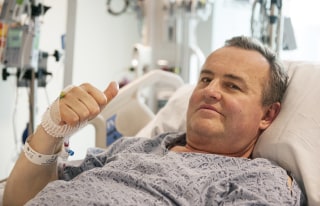A Cancer Survivor Receives the First Penis Transplant in the US
 |
Surgeons said Monday they have done the first penis transplant in the U.S., helping a 64-year-old man who lost his organ to cancer.
Massachusetts General Hospital planned a news conference later Monday to give details about the transplant, which is only the third recorded penis transplant ever done globally.
The New York Times interviewed the patient, who it identified as Thomas Manning, a bank courier from Halifax, Massachusetts.
"I want to go back to being who I was," the newspaper quoted Manning as saying.
Last year, a South African university said it had performed a successful penis transplant. Later, the patient went on to father a child.
China reported an unsuccessful transplant in 2006, saying it was reversed deliberately because the man and his wife did not like the result.
Penis transplants are complicated. The organ has many blood vessels and nerve endings, and also must connect the urethra to the bladder and to the prostate inside the body.
Plastic surgeons can perform penile reconstruction using a patient's own skin but a transplant of an entire organ is more complicated.
Lab-Grown Penises Lets Bunnies do What Bunnies do Best
Researchers funded by the U.S. military are also working on ways to regenerate penises in the lab for transplant using a patient's own cells. The hope is to help soldiers whose genitals have been damaged by mines and other explosive devices.
The United Network for organ Sharing says there is one patient on the waiting list for a penile transplant in the United States. The University of Maryland Medical System, Wake Forest Baptist Medical Center, Massachusetts General Hospital, Brigham and Women’s Hospital and Johns Hopkins Hospital all have approval to perform them.
MAGGIE FOX
Comments